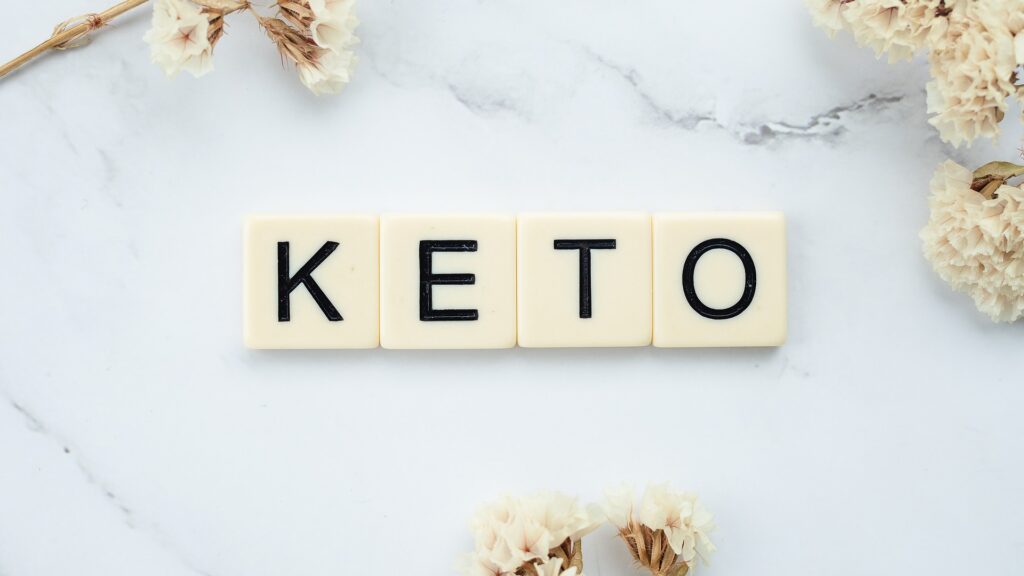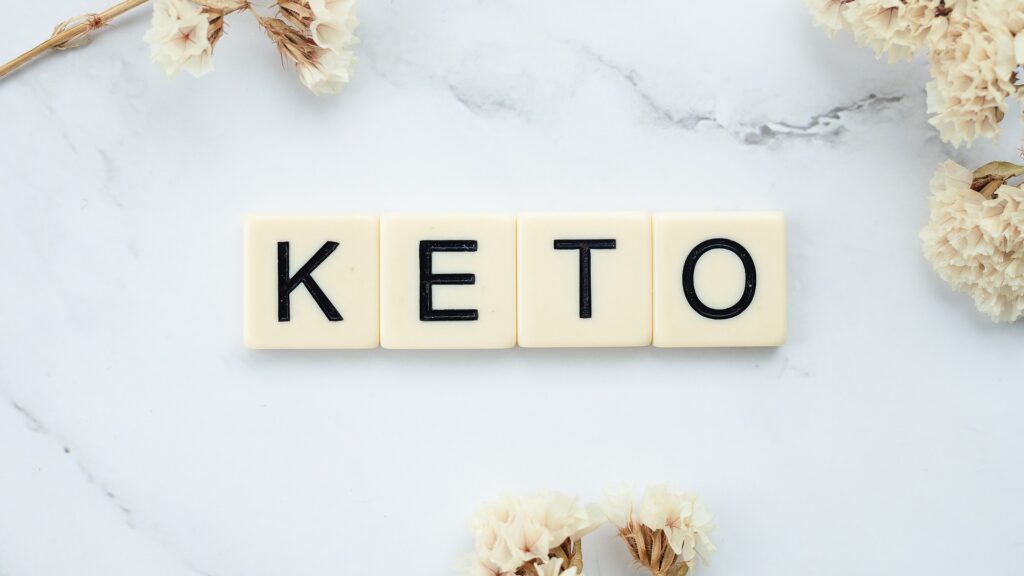Introduction
The ketogenic diet, also known as “keto,” has become a popular trend for weight loss and improved health. The idea behind keto is to shift the body’s primary energy source from carbohydrates to healthy fats. By doing this, the body enters a state called ketosis where it burns stored fat for energy instead of relying on carbohydrates.
In this article, we’ll answer some of the most common questions about the ketogenic diet and how it works. From how it helps with weight loss to what you can eat on the diet, we’ll cover everything you need to know to get started with keto.

How Does Keto Work?
- The body’s use of energy
The body typically uses glucose (a type of sugar) as its primary source of energy. This energy is obtained from carbohydrates found in the food we eat. When glucose levels in the body run low, such as when we exercise or go without food for an extended period, the body will break down stored glycogen into glucose to maintain energy levels.
- The role of ketosis in the keto diet
The ketogenic diet works by limiting the amount of carbohydrates consumed, forcing the body to find alternative sources of energy. When carbohydrate intake is restricted, the body starts to break down stored fat into molecules called ketones. The liver then produces ketones from fatty acids, which the body uses for energy instead of glucose. This metabolic state is known as ketosis.
How Does Keto Work for Weight Loss?
- Shift in energy source
The shift from relying on carbohydrates for energy to using stored fat for energy is what makes the ketogenic diet effective for weight loss. By limiting carbohydrate intake and increasing healthy fat intake, the body enters ketosis and burns stored fat for energy.
- Focus on healthy fats and moderate protein
While the ketogenic diet emphasizes the consumption of healthy fats, it also includes moderate amounts of protein. This balance of macronutrients ensures that the body continues to receive the necessary nutrients while still entering ketosis. Choosing healthy fats such as avocado, coconut oil, and olive oil, and lean proteins such as chicken, fish, and eggs, helps to promote weight loss while maintaining overall health.
Keto Desserts
Just because you’re following the ketogenic diet doesn’t mean you have to give up on dessert. With Keto Desserts, you can indulge in sweet treats without sacrificing your progress. From keto-friendly ice cream to delicious cheesecake, Keto Desserts has all the recipes you need to satisfy your sweet tooth while staying on track with the ketogenic diet.
What Are the Negatives of the Keto Diet?
- “Keto flu”
One of the most common side effects of starting the ketogenic diet is what’s referred to as the “keto flu.” This is a period of discomfort that can last for a few days to a week, and is characterized by symptoms such as headaches, fatigue, and muscle aches. The “keto flu” is caused by the body adjusting to the shift in energy sources and is a temporary side effect that usually goes away on its own.
- Constipation
Another side effect of starting the ketogenic diet is constipation. This is due to the decrease in fiber intake from limiting carbohydrate-rich foods such as fruits and grains. Drinking plenty of water and increasing fiber intake from low-carbohydrate sources such as leafy greens can help alleviate this side effect.
- Reduced physical performance
In the initial stages of the ketogenic diet, some people may experience a reduction in physical performance. This is due to the body adjusting to using ketones for energy instead of glucose. This reduction in physical performance is usually temporary and improves over time as the body becomes more efficient in using ketones for energy.
How Long Does It Take for Keto to Work?
- Variation from person to person
The amount of time it takes for the ketogenic diet to start working varies from person to person. Factors such as age, weight, and activity level can all play a role in how quickly the body enters ketosis. On average, it takes anywhere from 2-7 days for the body to fully adjust to the ketogenic diet and start producing ketones.
How Fast Will I Lose Weight on Keto?
Similar to the amount of time it takes for keto to start working, the rate of weight loss also varies from person to person. Factors such as age, weight, and activity level can all play a role in weight loss. Some people may experience rapid weight loss in the first week, while others may have a slower rate of weight loss. It’s important to remember that weight loss should be gradual and sustainable, and not quick or extreme.
The Keto Snacks Cookbook
Snacking can be a challenge on the ketogenic diet, but with The Keto Snacks Cookbook, you’ll never have to feel deprived again. From crunchy kale chips to savory cheese crackers, The Keto Snacks Cookbook has all the recipes you need to satisfy your cravings while staying on track with the ketogenic diet.
Can Keto Diet Reduce Belly Fat?
Yes, the ketogenic diet has been shown to be effective in reducing belly fat. By shifting the body’s energy source from carbohydrates to healthy fats, the body burns stored fat for energy, including belly fat. However, it’s important to remember that weight loss is not just about reducing belly fat, but also about overall health and body composition.

What Should I Eat Daily on Keto?
- Healthy fats
Healthy fats are the cornerstone of the ketogenic diet. Foods such as avocado, coconut oil, and olive oil are great sources of healthy fats. In addition, foods such as nuts, seeds, and fatty fish such as salmon are also great sources of healthy fats.
- Moderate protein
The ketogenic diet includes moderate amounts of protein. Foods such as chicken, fish, and eggs are great sources of lean protein. It’s important to choose lean protein sources to ensure that the body continues to receive the necessary nutrients while still entering ketosis.
- Low carbohydrate vegetables
Low carbohydrate vegetables such as leafy greens, broccoli, and cauliflower are also included in the ketogenic diet. These vegetables provide fiber, vitamins, and minerals, and help to keep the body feeling full.
Do Doctors Recommend Keto?
The ketogenic diet has been shown to have numerous health benefits and is often recommended by doctors for certain medical conditions such as epilepsy, type 2 diabetes, and certain neurological conditions. However, it’s important to consult with a doctor before starting the ketogenic diet, especially if you have a pre-existing medical condition or are taking medications.
Is Alcohol Allowed on Keto?
Alcohol should be limited on the ketogenic diet. Many alcoholic beverages, such as beer and sweet mixed drinks, are high in carbohydrates and can disrupt ketosis. If you choose to drink alcohol, it’s recommended to opt for low carbohydrate options such as clear spirits mixed with a sugar-free mixer.
The Ultimate Keto Meal Plan
When following the ketogenic diet, it’s important to have a plan in place to ensure success. The Ultimate Keto Meal Plan can provide you with the guidance and resources you need to stick to the diet and reach your goals. With delicious, keto-friendly recipes and meal ideas, the Ultimate Keto Meal Plan is the perfect companion for your ketogenic journey.
Can You Eat Fruit on Keto?
Fruit should be limited on the ketogenic diet as many fruits are high in carbohydrates. If you choose to eat fruit, it’s recommended to opt for low carbohydrate options such as berries.
How Often Should You Eat on Keto?
The frequency of meals on the ketogenic diet will vary from person to person. Some people may choose to eat three larger meals, while others may prefer to eat smaller, more frequent meals. It’s important to listen to your body and find a meal frequency that works for you and your lifestyle.
Can You Have a Cheat Day on Keto?
Having a cheat day on the ketogenic diet can disrupt ketosis and negatively impact weight loss. If you choose to indulge in a non-keto meal, it’s recommended to do so in moderation and get back on track with keto-friendly meals as soon as possible.
What Does 1 Week of Keto Do?
One week on the ketogenic diet can lead to weight loss, improved energy levels, and better mental clarity. However, the effects of one week of keto will vary from person to person. For some, the effects may be more pronounced, while for others they may be less noticeable. It’s important to give the diet time to work and stick with it for at least a few weeks to see the full effects.
The Keto Air Fryer Cookbook
Cooking on the ketogenic diet can be time-consuming, but with The Keto Air Fryer Cookbook, you can prepare delicious, keto-friendly meals in a fraction of the time. With recipes for everything from crispy chicken wings to roasted vegetables, The Keto Air Fryer Cookbook makes it easy to stick to the ketogenic diet and enjoy delicious, healthy meals every day.

In conclusion, the ketogenic diet is a low carbohydrate, high fat diet that has been shown to have numerous health benefits, including weight loss and improved energy levels. If you’re considering starting the ketogenic diet, it’s important to consult with a doctor and have a plan in place, including resources such as The Ultimate Keto Meal Plan, Keto Desserts, The Keto Snacks Cookbook, and The Keto Air Fryer Cookbook. With these resources, you’ll have all the tools you need to succeed on the ketogenic diet and reach your goals.

